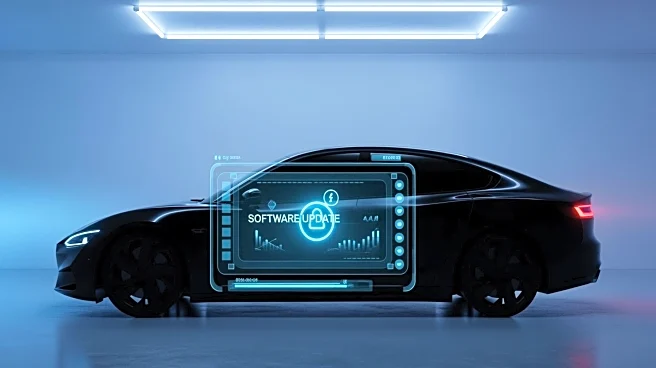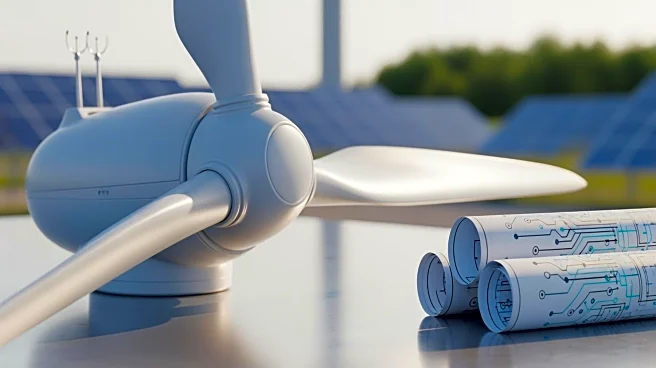What's Happening?
Tesla's Model 3, purchased in 2019, has benefited from numerous software updates, enhancing features such as navigation and infotainment. However, recent developments highlight a growing issue: older Tesla models may not support new software updates due
to hardware limitations. This is exemplified by the introduction of Tesla's AI assistant, Grok, which is only compatible with newer models equipped with advanced processors. As cars increasingly rely on software for functionality, the risk of obsolescence grows, similar to smartphones that become outdated due to software incompatibility. This trend is not unique to Tesla; other automakers face similar challenges as they integrate more software-dependent features into vehicles.
Why It's Important?
The shift towards software-dependent vehicles represents a significant change in the automotive industry, with implications for consumers and manufacturers alike. As cars become more like smartphones, they risk becoming obsolete faster than traditional vehicles, potentially affecting resale values and consumer satisfaction. This trend could lead to increased pressure on automakers to provide long-term software support and updates, impacting their business models and customer service strategies. Additionally, the reliance on software raises concerns about cybersecurity and the need for robust systems to protect against vulnerabilities.
What's Next?
Automakers may need to develop strategies to ensure older models remain functional and competitive, possibly through hardware upgrades or extended software support. This could involve partnerships with tech companies to enhance vehicle software longevity. Consumers might also see changes in how vehicles are marketed, with a focus on software capabilities and update potential. Regulatory bodies could step in to establish standards for software support duration, similar to safety recall requirements, ensuring consumer protection and industry accountability.
Beyond the Headlines
The integration of software into vehicles raises ethical and legal questions about consumer rights and product lifespan. As cars become more dependent on software, manufacturers may face scrutiny over planned obsolescence and the environmental impact of increased electronic waste. This shift also highlights cultural changes in vehicle ownership, with consumers potentially prioritizing tech features over traditional automotive qualities. Long-term, this could influence urban planning and transportation policies as software-driven vehicles become more prevalent.
















